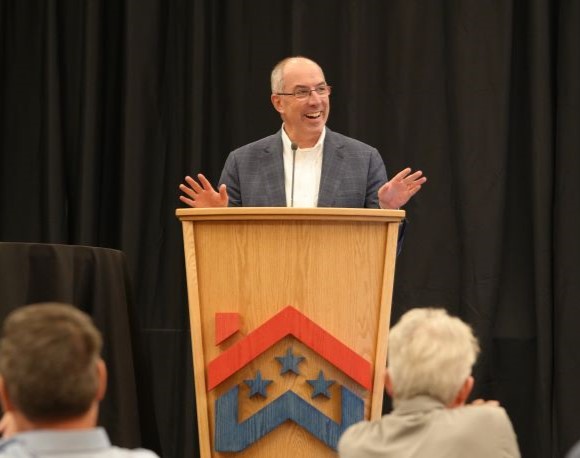November 15, 2023
OLYMPIA…A recently completed survey of cities and counties in Washington reveals local government successes and opportunities for improving the state’s ability to address its massive housing shortage.The residential homebuilding industry made historic strides in the 2023 legislative session. Legislators passed substantive permit processing reform and other measures allowing more homebuilding to address the state’s demand.With a current shortage of more than 250,000 housing units, there’s more work to do to help meet the demand.The Building Industry of Washington's Center for Housing Studies turned to city and county permitting and planning staff for more insight before the 2024 legislative session. The resulting report, “Planning and Development in Washington state,” provides data from a statewide survey and offers solutions to improve in the future.
Highlighting local government successes and opportunities
“We commend the jurisdictions who have found creative ways to streamline the permitting process,” said Policy and Research Manager Andrea Smith, MPA, who authored the report. “This study was designed to help jurisdictions understand what is working (or not) across the state. While some local governments had made strides on permitting, we found striking inconsistencies in the administration of impact fees that we hope to address in 2024.”
Electronic permitting
Nearly 70% of cities and counties responding to the survey offered ways to submit permit applications electronically. A full 56% of counties and 37% of cities offered ways to submit and track permit application status online.“Electronic permitting is a great way to reduce permit timelines and increase transparency, both of which are critical to reducing housing costs,” Smith said. “Each week of permit delay adds $1,100 to the sales price of a home.”
Impact fees
Under the state’s Growth Management Act, local governments may assess impact fees to fund new or expanded public capital facilities needed to address the increased demand for services due to a new housing development. These fees can fund parks, fire services, traffic needs and schools. The report revealed impact fees vary widely throughout jurisdictions and can be changed anytime during the year.The average impact fees for single-family homes in King County were $35,359. In contrast, impact fees in Snohomish County were only $5,434. The average total impact fee for the cities responding was $8,505 for single-family homes.“BIAW has several policy recommendations to address the wide variation of impact fees and increase transparency,” Smith said.Other highlights of the report:
- Counties tend to employ double the planning and review staff that cities employ.
- Most jurisdictions reported having minimum lot size requirements.
- There was no consistency in jurisdictions’ permit or zoning change review processes.
- With some exceptions, the larger the jurisdiction, the more inspections required per project.
- Classification of “missing middle” housing types (condominiums, townhomes, etc.) is not applied consistently across jurisdictions.
Policy recommendations
Based on the findings of the report, BIAW recommends the legislature explore:
- Impact fee reform to provide for more predictability and transparency.
- Statewide online permitting system to reduce communication lags between state agency approval and notification to the jurisdiction.
- Statewide definitions and reporting of condominium, townhome and ADU permits.
###
About Washington Center for Housing Studies
Dedicated to comprehensive analysis and research of housing trends, policies, and challenges in Washington state and situated at the intersection of academia, government, and industry, the Center plays a pivotal role in shaping the discourse and strategies surrounding housing attainability. The Center equips decision-makers with the knowledge and tools needed to address the complex and evolving housing policy landscape. Fostering collaboration and dialogue among diverse stakeholders, the Center seeks to drive innovation and progress toward affordable and sustainable housing for all.








